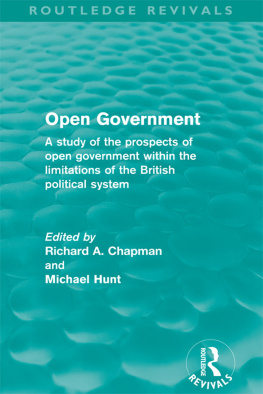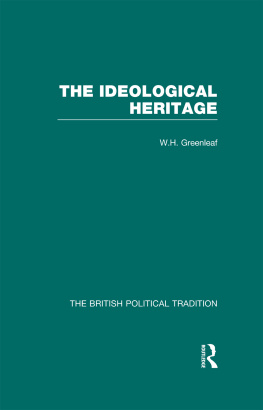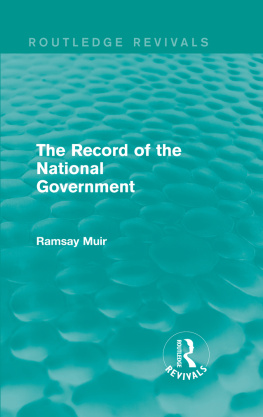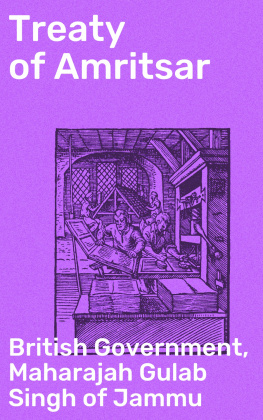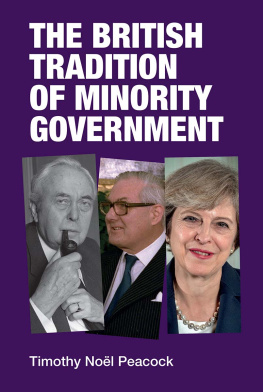ROUTLEDGE LIBRARY EDITIONS: THE FIRST WORLD WAR
Volume 3
WAR AND THE STATE
WAR AND THE STATE
The Transformation of British Government, 1914-1919
Edited by
KATHLEEN BURK
First published in 1982
This edition first published in 2014
by Routledge
2 Park Square, Milton Park, Abingdon, Oxon, OX14 4RN
and by Routledge
711 Third Avenue, New York, NY 10017
Routledge is an imprint of the Taylor & Francis Group, an informa business
1982 Kathleen Burk
All rights reserved. No part of this book may be reprinted or reproduced or utilised in any form or by any electronic, mechanical, or other means, now known or hereafter invented, including photocopying and recording, or in any information storage or retrieval system, without permission in writing from the publishers.
Trademark notice: Product or corporate names may be trademarks or registered trademarks, and are used only for identification and explanation without intent to infringe.
British Library Cataloguing in Publication Data
A catalogue record for this book is available from the British Library
ISBN: 978-0-415-74924-4 (Set)
eISBN: 978-1-315-77961-4 (Set)
ISBN: 978-1-138-01839-6 (Volume 3)
eISBN: 978-1-315-77972-0 (Volume 3)
Publishers Note
The publisher has gone to great lengths to ensure the quality of this reprint but points out that some imperfections in the original copies may be apparent.
Disclaimer
The publisher has made every effort to trace copyright holders and would welcome correspondence from those they have been unable to trace.
War and the State
The Transformation of British Government, 1914-1919
Edited by
KATHLEEN BURK
George Allen & Unwin (Publishers) Ltd, 1982.
This book is copyright under the Berne Convention. No reproduction without permission. All rights reserved.
George Allen & Unwin (Publishers) Ltd,
40 Museum Street, London WC1A 1LU, UK
George Allen & Unwin (Publishers) Ltd,
Park Lane, Hemel Hempstead, Herts HP2 4TE, UK
Allen & Unwin, Inc.,
9 Winchester Terrace, Winchester, Mass. 01890, USA
George Allen & Unwin Australia Pty Ltd,
8 Napier Street, North Sydney, NSW 2060, Australia
First published in 1985
British Library Cataloguing in Publication Data
War and the state.
1. Great BritainPolitics and government1910-1936
I. Burk, Kathleen
354.410009 JN231
ISBN 0049400657
Library of Congress Cataloging in Publication Data
Main entry under title:
War and the state.
Includes bibliographies and index.
1. Great BritainPolitics and government1910-1936 Addresses, essays, lectures. 2. World War, 1914-1918 Great Britain-Addresses, essays, lectures.
I Burk, Kathleen.
DA577.W34 940.31 82-3989
ISBN 0049400657 AACR2
Set in 10 on 11 point Press Roman by System 4 Associates Ltd,
Gerrards Cross and printed in Great Britain
by Billing and Sons Ltd, Guildford, London and Worcester
The origin of this book lies in my first year of postgraduate research, when I felt the lack of a single book describing how the British government had developed during the First World War. It was clear that the period had seen fundamental change: the central government had increasingly taken on responsibilities which had before been left to private initiative, especially in the fields of industry and food distribution; further, the Cabinet, with its attendant secretariat, and the Treasury acquired in this period the powers and developed the procedures which subsequently enabled these two institutions to oversee and to control the central government machine itself. It seemed that an attempt should be made to answer the following general questions: What was British government like in 1914? How and why did it change? and What permanent changes remained thereafter? To provide some answers to these questions is the purpose of this book.
Deciding on how to begin and to end the book was relatively easy. First, it seemed that there ought to be an essay setting out the background to the extension of controls which was such a mark of the war. What were the changes in political perceptions which made economic planning seem necessary? Symmetry demanded that the book end with an essay analysing just why so many of the wartime controls disappeared so quickly. The central chapters of the book, however, which deal with individual departments, presented a problem of selection. It seemed clear that essays on the Cabinet and the Treasury should be included, both because of the importance of the war to their development and because of their central importance to the government machine. It also seemed obvious that the Ministry of Munitions, the first and most famous of the mushroom ministries which seemed to spring up overnight, should also be considered. The other two ministries discussed, those of Labour and Food, were ministries established during the war which had a major domestic impact. Their separate births provide interesting contrasts. The idea of a Ministry of Labour was not a new one, although in the event its establishment awaited the political pressures generated by the war. The Ministry of Food, conversely, was more akin to other wartime ministries (of which at least seven were born between 1916 and 1918) in that it owed its establishment purely to wartime requirements. The Ministry of Food is notable in that it interfered more than other ministries with the daily lives of non-combatants by means of a nationwide system of rationing. Altogether, the seven essays go some way towards providing a picture of a government responding as best it could to the unexpected and unfamiliar requirements of a long and destructive mass war.
Within months of the beginning of the First World War, it became evident that the plans which had been made for government intervention in the economy were woefully inadequate. In the first essay, David French shows that this was due not so much to devotion to laissez-faire precepts on the part of prewar planners as to a false expectation of the nature of the war. Those concerned with anticipating the disruption likely to be caused by a war worked on the assumption that Britain would follow a strategy organised on the following principles: the army would be small and manned by volunteers, and the greater part of the British effort would be concentrated on controlling the oceans and blockading Germany. There would thus be no need for the government to organise manpower or industry, and business as usual in the domestic economy was a reasonable expectation.
It was the decision by the Cabinet to raise a mass army which upset the prewar calculations. It took some months for the Asquith government to face the implications for administrative change which the need to supply a mass army implied such as industrial mobilisation and Dr French describes the reluctant confrontation with reality. The essay ends with the setting up in May 1915 of the Ministry of Munitions under the leadership of Lloyd George, the first ministry created during the war to exercise economic control.
In the second essay, C. J. Wrigley considers the activities of the Ministry of Munitions, asking whether it was as new, exciting and different as myth makes out. Was the allegation which led to the setting up of the Ministry of Munitions, that the War Office was incompetent, justifed; or was it true that the Ministry of Munitions reaped the benefit of the War Offices plans? Was the ministry as innovatory in its activities as has been claimed? Dr Wrigley argues that although the War Office did fail, it did so not through placing insufficient orders but rather through not ensuring that its suppliers had the necessary labour, machinery and other scarce resources. Once the ministry was established, it was organised differently from the rest of Whitehall, in that its separate sections were nearly autonomous, rather than centrally controlled within the ministry. (This, however, changed in the later years of the ministry.) It further challenged established patterns by the widespread introduction of businessmen in policymaking positions, and by the large percentage of women employed in the bureaucracy. These innovations, however, were merely the means to the end, which was to mobilise British industry to produce the munitions a;id supplies needed for the mass armies. The Ministry of Munitions was involved in every sector of industry. It encouraged the expansion of capacity in engineering firms, and promoted purpose-built state munitions factories; it fostered new manufacturing techniques, and pressed firms to specialise. The ministry involved itself in industrial relations, alternately coaxing and coercing both management and labour. It used the Defence of the Realm Act to house munitions workers. However, such activities were considered to be specific to wartime, and unlike the other two wartime ministries discussed in this book, the Ministry of Munitions was closed down as soon as possible after the peace treaty was signed.


